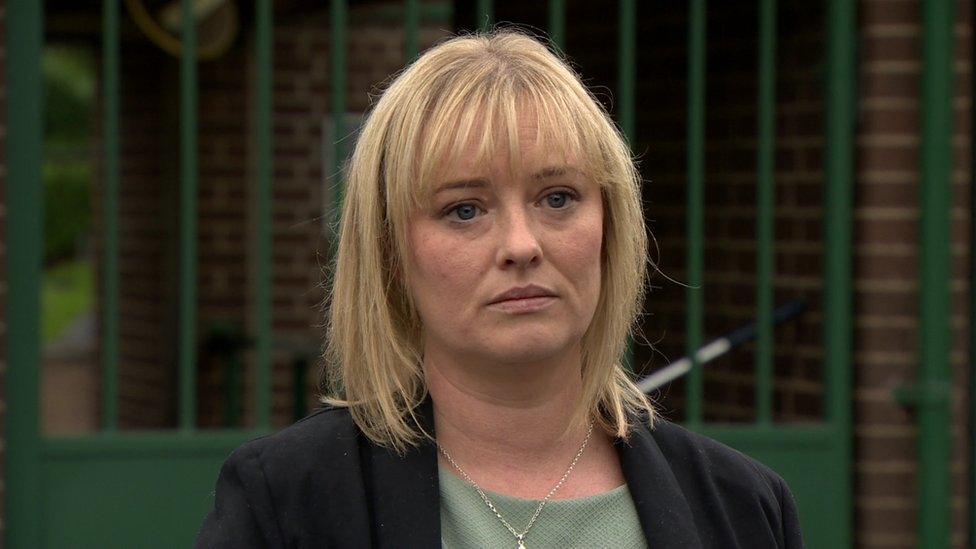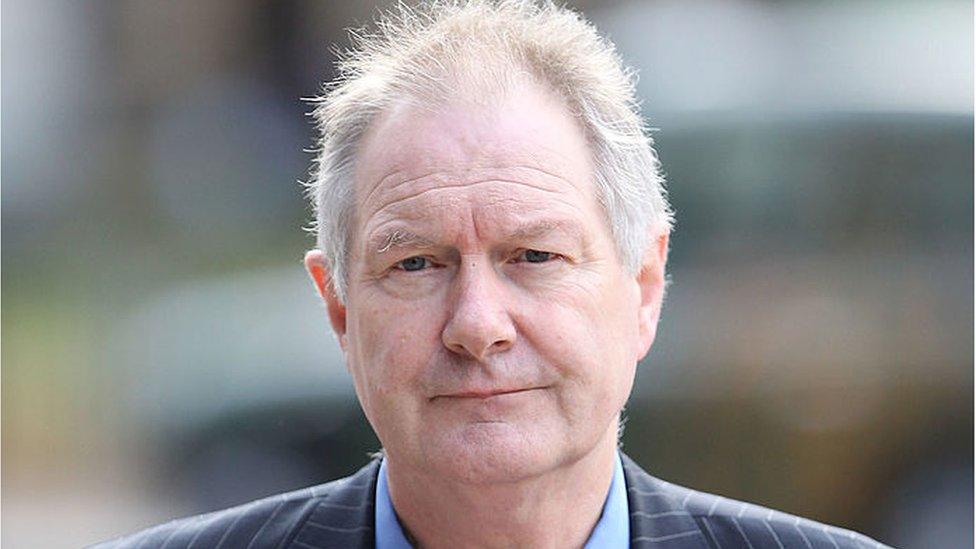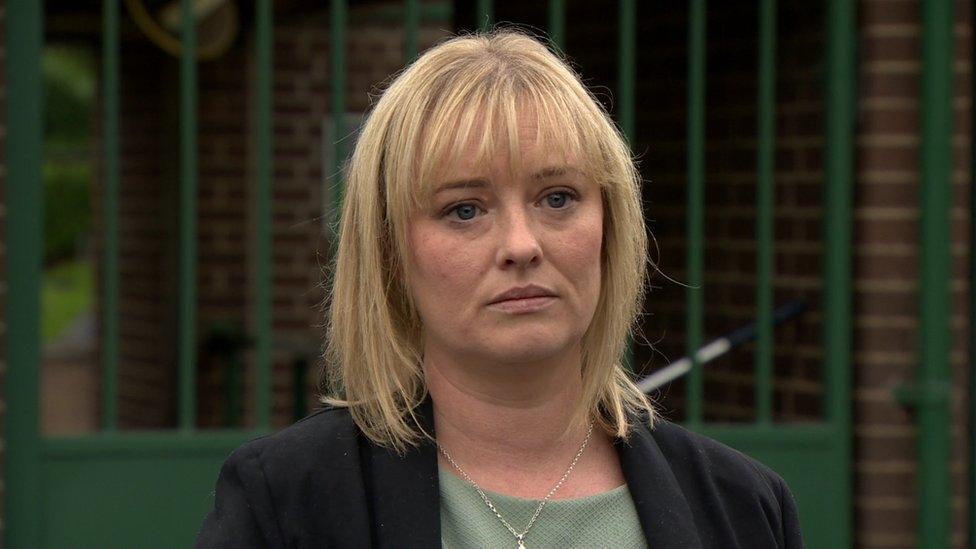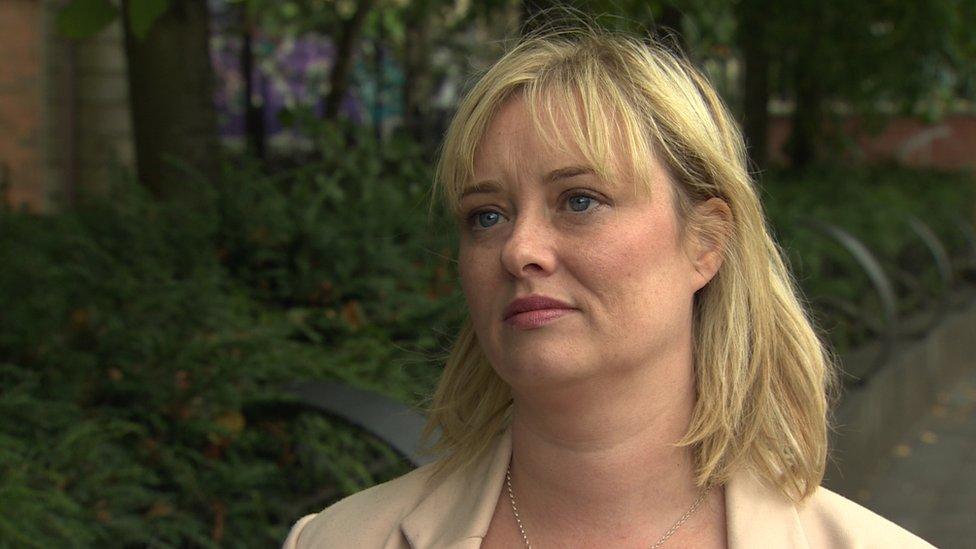Roy Greenslade: The Guardian apologises to Máiría Cahill over column
- Published

Máiría Cahill described Mr Greenslade's article about her in The Guardian as "vile"
The Guardian newspaper has apologised to Máiría Cahill over an article written about her by former Fleet Street editor Roy Greenslade.
In 2014, Ms Cahill told a BBC Spotlight investigation that she had been raped by a member of the IRA.
She reported this to police in 2010.
After the programme, Mr Greenslade wrote a column in The Guardian which said that Spotlight "were too willing to accept Cahill's story and did not point to countervailing evidence".
In his column in 2014, Mr Greenslade said: "This lack of balance resulted in the Cahill story being accepted at face value across Ireland, where [Gerry] Adams and his party were forced on to the back foot as they tried to defend and explain the IRA's actions."
Ms Cahill received an apology from the PSNI in 2018 after a report found she had been failed by them over her claim.

Roy Greenslade is a former editor of the Daily Mirror and was media commentator for The Guardian
Last week, Mr Greenslade wrote in the British Journalism Review, external that he backed the IRA's armed campaign while he was working as a journalist during the Troubles.
Ms Cahill then complained to The Guardian that its 2014 article by Mr Greenslade was a "propaganda piece against a rape victim".
'Not handled appropriately'
The Guardian confirmed on Friday evening that its current editor-in-chief, who was not in the role at the time the article was published, had sent a private apology on its behalf to Ms Cahill.
Katharine Viner, who took up her post in 2015, acknowledged that the column "was not handled appropriately".
"I can only apologise again that Roy Greenslade's article was not handled appropriately in the first place," said Ms Viner.
The Guardian has begun a review into articles about NI written by the ex-Daily Mirror editor and The Guardian commentator, after the complaint by Ms Cahill.
In an earlier statement, the Guardian said its reader's editor - who considers comments, concerns and complaints from a position of independence - would be reviewing "other historical Roy Greenslade articles concerning Northern Ireland" to "ensure that they meet the Guardian's editorial standards and are sufficiently transparent".
In an endnote to Mr Greenslade's column, added this week, The Guardian said its reader's editor "considered the complaint and concluded that the columnist ought to have been open about his position".
'Quite horrifying'
Speaking to the BBC, Ms Cahill said the apology issued to her "doesn't go far enough".
"I was a child abuse victim and my credibility was not in question - I've had an apology from the then Chief Constable and DPP - so I find it quite horrifying, to be honest."
She added: "Journalists are supposed to hold the powerful to account."
Ms Cahill said that the article by Mr Greenslade "was published in the Guardian with no disclosure of his political affiliations - I have yet to be offered a right of reply".
The Guardian's endnote in the Mr Greenslade's column added: "GNM's editorial guidelines on conflicts of interest say (in part) that 'it is always necessary to declare an interest when the journalist is writing about something with which he or she has a significant connection' and that this applies to all active outside interests which, should they remain undeclared and become known, would cause a fair-minded reader to question the value of a contribution to the paper by the journalist involved".
On Monday, it emerged Mr Greenslade had resigned from his post as a journalism lecturer at City University in London following the article.
Related topics
- Published14 September 2018

- Published13 September 2018
